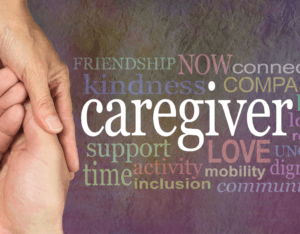With age comes less independence and, for many, the need for help with many of the activities of daily living. The question I get from many people trying to navigate through the myriad of care options is “what are the advantages of assisted living vs. home care”?
And, how do I choose?
In this article I will show you the difference between assisted living and home care to help you decide which is the right option for you and your family.
The Senior Tsunami
You’ve probably heard the terms “senior tsunami” or “silver tsunami”. They are terms used to describe the demographic phenomenon of population aging that we are experiencing right now. As the Baby Boomers age during the next 20 years, the number of older Americans will rise dramatically.
Maybe you are the adult child of a parent who is beginning to lose their ability to remain independent. You’ve noticed that the home is not as clean as it once was. Or, that they are having difficulty performing basic chores, running errands or driving to appointments.
What do you do? Since each situation is different, you more than likely have many options. But, for this article, we will look the options of Assisted Living vs. Home Care.
Assisted Living
Assisted living is a type of care facility that helps seniors with the tasks of daily living. Your loved one becomes part of a community where they can take part in activities, social events and develop a routine. These types of facilities are great for seniors who fear isolation since they will be around a lot of other seniors.
People who live in an assisted living facility can have a separate room or share a room with another senior.
Assisted living facilities oftentimes provide transportation, housekeeping, laundry, and some medical services. They are designed essentially to help residents stay mobile, active, and safe. While these are all benefits, there is also less privacy and independence when one lives in an assisted living community.
Home Care
Home care, on the other hand, allows your loved one to remain in the comfort of their own home. Surveys show that most people would prefer the privacy of receiving care from a professional in the comfort of their own home. In-home care allows a person to receive help with daily tasks while simultaneously living in the home they are comfortable and familiar with.
 Depending on the level of care needed and the number of hours per day, the cost of home care can vary widely. In-home care professionals are typically paid by the hour. Read How To Hire A Caregiver | Private vs. Agency for more information on this.
Depending on the level of care needed and the number of hours per day, the cost of home care can vary widely. In-home care professionals are typically paid by the hour. Read How To Hire A Caregiver | Private vs. Agency for more information on this.
Duties can include general chores like helping with organizing things, light housekeeping, laundry, or medical assistance. Staying in one place while receiving care enables a senior to stay with family members who do not need the same level of care they do.
In Summary
The advantage of assisted living is the 24-hour support and supervision. Facilities are built to provide safety for your loved one, nutritious meals, fitness programs, around the clock housekeeping, and laundry.
On the other hand, in-home care allows your loved one to stay with family in an environment they are comfortable with. In-home care also lets seniors maintain independence and control over their routine.
For In-Depth Information
What Are We Going to Do About Mom and Dad? : A Navigational Guide to Assisted Living and Senior Care is a great resource if you would like more information. It’s one of those books that you carry with you, read as you go, review and discuss in family meetings. It is designed to get you and your senior through it and to a positive place in the long run..
Recommended For You

Senior Care Plan Template – Free Download
If you are caring for an elderly loved one or have hired a caregiver, having a care plan in place is essential. I will show you how to create a …

How To Deal with Caregiver Stress – Tips To Help You!
Informal caregivers (as we are called) provide 80% of the long-term care in the U.S. As the population ages, more caregiving is being provided by people who aren’t health care professionals like you and me. In this article I will discuss the signs of stress on family caregivers and show

How To Care For A Caregiver
If you are, or have been a caregiver, you know that caregiving is a labor of love. Your work is often performed in the shadows without much recognition. While caregivers …

States That Pay Family Caregivers
Nearly 80% of adults living at home and receiving long-term care assistance depend solely on relatives and friends, according to the Family Caregiver Alliance (FCA). The role of informal caregiver …

Characteristics of a Good Caregiver – The Top 6
What are the characteristics of a good caregiver? Whether you are hiring a private caregiver or one through an in-home care agency, you want to know. I owned an in-home care agency and hired hundreds of caregivers over the years. Some were good, some were great and then there were

How To Talk To Parents About Aging
After my mom had a brain hemorrhage due to complications from MS, she required 24-hour care. And, even though she had MS and we knew what the eventual outcome might …

